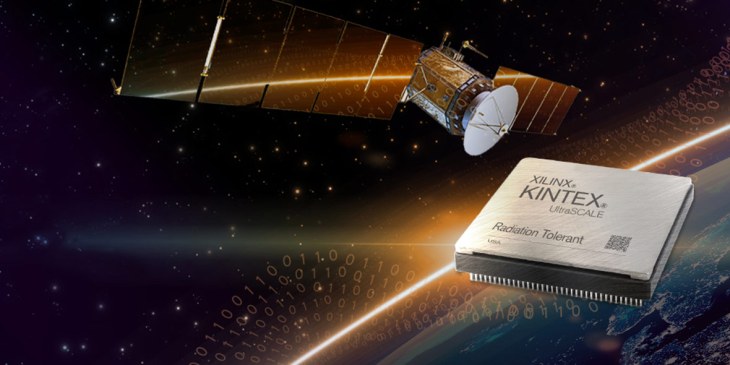Space-specific silicon company Xilinx has developed a new processor for in-space and satellite applications that records a number of firsts: It’s the first 20nm process that’s rated for use in space, offering power and efficiency benefits, and it’s the first to offer specific support for high performance machine learning through neural network-based inference acceleration.
The processor is a field programmable gate array (FPGA), meaning that customers can tweak the hardware to suit their specific needs since the chip is essentially user-configurable hardware. On the machine learning side, Xilinx says that the new processor will offer up to 5.7 tera operations per second of “peak INT8 performance optimized for deep learning,” which is an improvement of as much as 25x vs the previous generation.
Xilinx’s new chip has a lot of potential for the satellite market for a couple of reasons: First, it’s a huge leap in terms of processor size, since the company’s existing traditional tolerant silicon was offered in a 65nm spec only. That means big improvements in terms of its size, weight and power efficiency, all of which translates to very important savings when you’re talking about in-space applications, since satellites are designed to be as lightweight and compact as possible to help defray launch costs and in-space propellant needs, both of which represent major expenses in their operation.
Finally, its reconfigurable nature means that on-orbit assets can be reprogrammed on-demand to handle different tasks – which now include local machine learning algorithm processing. That means you could theoretically switch one of these in an Earth observation satellite from handling something like tracking cloud density and weather patterns, to making inferences about deforestation or strip mining, for instance. That’s a whole lot of added flexibility for satellite constellation operators looking to move where market demand is needed most.
Xilinx’s chips are special in a number of ways vs. the kind we use here on Earth, including with the aforementioned radiation tolerance. They also come packed in thick ceramic packaging which add extra durability both during the launch phase, where stresses include extreme vibration, and on orbit where the lack of an atmosphere means exposure to an extremely harsh environment in terms f both radiation and temperature.
